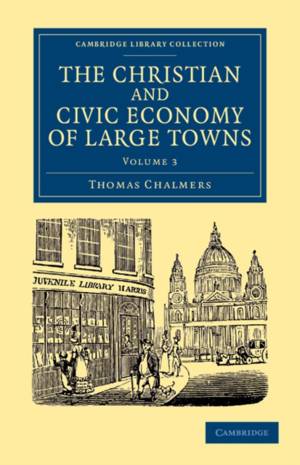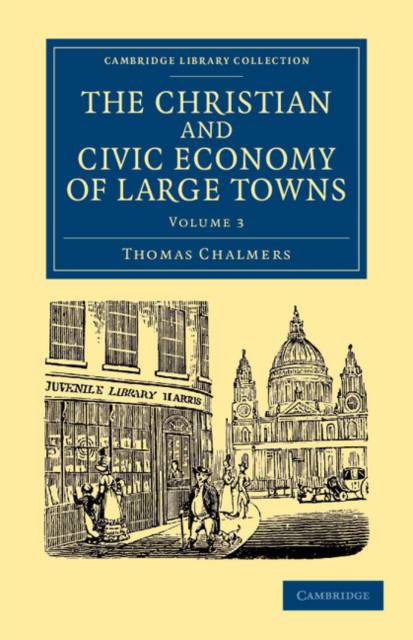
Je cadeautjes zeker op tijd in huis hebben voor de feestdagen? Kom langs in onze winkels en vind het perfecte geschenk!
- Afhalen na 1 uur in een winkel met voorraad
- Gratis thuislevering in België vanaf € 30
- Ruim aanbod met 7 miljoen producten
Je cadeautjes zeker op tijd in huis hebben voor de feestdagen? Kom langs in onze winkels en vind het perfecte geschenk!
- Afhalen na 1 uur in een winkel met voorraad
- Gratis thuislevering in België vanaf € 30
- Ruim aanbod met 7 miljoen producten
Zoeken
€ 81,95
+ 163 punten
Uitvoering
Omschrijving
This three-volume study by the Scottish churchman and social reformer Thomas Chalmers (1780-1847) is a revealing work of Christian morality as applied to urban economic theory. Having moved to Glasgow in 1815, Chalmers was given a free hand in 1819 for an experiment in urban ministry at the new parish of St John's in the poorest district of the city. His reforms improved education and reduced the need for institutional poor relief by dividing the area into manageable 'proportions' that were closely looked after by parish elders and deacons, reviving a traditional community spirit and promoting self-help. Volume 3, published in 1826, was written after Chalmers left St John's to become Chair of Moral Philosophy at St Andrew's. It focuses on the relationship between labour, wages and poor relief, discussing how labouring classes should not depend upon welfare and wages to relieve want, but rather practise self-help to reform their condition from below.
Specificaties
Betrokkenen
- Auteur(s):
- Uitgeverij:
Inhoud
- Aantal bladzijden:
- 414
- Taal:
- Engels
- Reeks:
Eigenschappen
- Productcode (EAN):
- 9781108062374
- Verschijningsdatum:
- 27/06/2013
- Uitvoering:
- Paperback
- Formaat:
- Trade paperback (VS)
- Afmetingen:
- 140 mm x 216 mm
- Gewicht:
- 521 g

Alleen bij Standaard Boekhandel
+ 163 punten op je klantenkaart van Standaard Boekhandel
Beoordelingen
We publiceren alleen reviews die voldoen aan de voorwaarden voor reviews. Bekijk onze voorwaarden voor reviews.









